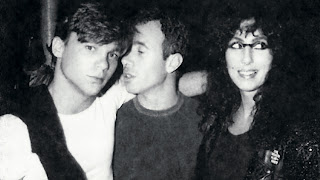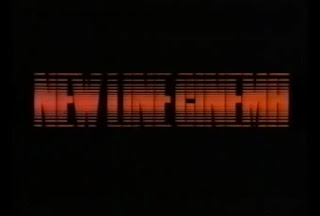It's by no means unusual for a successful film to spawn imitations,
along with the inevitable official sequels, prequels, remakes, and re-
imaginings...happens all the time. So it was that the phenomenon that was
Rocky inspired music impresario
Robert Stigwood to quickly
develop and produce his own urban, working class fable, optioning
Nik Cohn's New York article
"Tribal Rites of the New Saturday Night" and enlisting
Serpico scribe
Norman Wexler to write the screenplay version of what would eventually be called
Saturday Night Fever. It's fitting that
Rocky director John G. Avildsen was the original helmer of
Saturday Night Fever before having "creative differences" with Stigwood and star John Travolta, leading to his being replaced by John Badham during pre-production. I can only assume
that the
Rocky poster on Tony Manero's wall is a remnant of the production design overseen by Avildsen (additionally, there's a
Serpico poster in Manero's bedroom; incidentally,
Serpico is
another film that Avildsen was attached to at one point). Prior to their near-collaboration on
Serpico, Wexler and Avildsen teamed on
Joe, another blue collar cinematic icon of the '70s, which J. Hoberman wrote about
here on its 30th anniversary.
Even with that not
so unusual production history in mind, it is interesting to see the mythos and cultural impact of a film, right down to the
Rocky poster prominently displayed on Tony Manero's wall, so quickly and
openly acknowledged and absorbed, in part, by another film; to put this in perspective
Saturday Night Fever was being produced while
Rocky was still in theatrical release. It's this relationship between
Rocky and
Saturday Night Fever, Rocky Balboa and Tony Manero, that I play with a bit in this short
video essay:
Continuing this Balboa - Manero strand,
Rocky writer and star and Sylvester Stallone would direct
Saturday Night Fever's inferior sequel
Staying Alive (complete with theme song by Stallone frere Frank).
Completing this circle, over thirty years later, Saturday Night Fever would inspire the fascinating Chilean film Tony Manero, darker and more disturbing than anything on screen in either Rocky or Saturday Night Fever.































































































